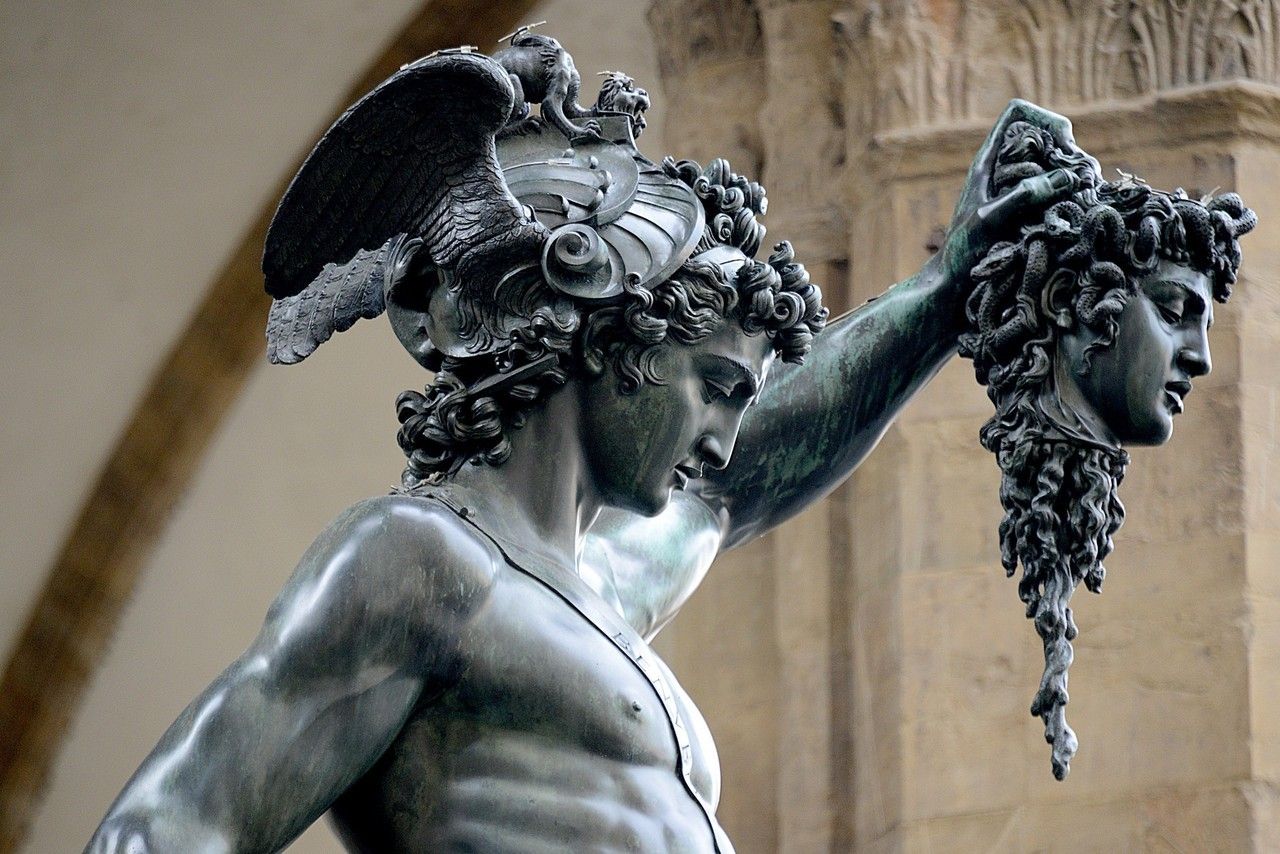John Snow
For finally convincing westerners that microbes exist. Which got the ball rolling on like, actual medicine.
That’s all.
He did, in fact, know something.
And it was quite important.
(almost like the fictional character was named that for a reason–)
And killing the last of the dragons and stuff
Louis Pasteur?
His milk is so passé. Louis Microfilter has much better stuff these days
But you need a subscription for it :p
I’m more a fan of Jonas Salk, Maurice Hilleman, Edward Jenner, Alexander Fleming
Norman borlaug and Fritz Haber. The first was basically the father of modern agriculture helping feed over a billion people. The latter known as the man that saved billions and killed millions, helped develop the haber bosch process that produces ammonia used in fertillizers that are responsible for feeding half the world’s population. It was also used in explosives hence the “killed millions” part.
Louis Pasteur
Johannes Gutenberg, the inventor of the printing press.
I suspect that one is overrated, actually. He did one step in a long, gradual process. He gets credit mainly because it was big for Europe, who right at that moment in history invented proper seafaring and spread themselves and his name all over the place.
Considering Europe did conquer the world (yes, including China), I’d say that’s a pretty big deal…
I don’t think that was related to Gutenberg at all. Or, at the very least, they would have industrialised just a bit later without him. The initial wave was all about boats that allowed them to reach and enslave less advanced people.
But if you think the internet and social media as the continuation of that tradition - maybe that was a mistake after all. /s
Politicians and kings rarely do something they weren’t forced to, and inventors are rarely without competition, so I take issue with most of the responses here.
Instead, I’ll go with naval officer Vasily Arkhipov, who, if he had decided to agree with the normal officers of the submarine he happened to be on, would have started a hot Cold War on 27 October, 1962.
Then again, there was a separate, slightly less severe close call the same day, so if you butterfly that who knows what else happens. It was a crazy time where few understood nuclear diplomacy and cold warfare, but nukes were ubiquitous, and were being treated like normal weapons. We got lucky.
There was another noteworthy case with Stanislav Petrov.
Yup. That one had a bit more wiggle room, though, because his superiors might have just come to the same conclusion he did. The other incident marked likely on the Wikipedia list is actually from France, which is almost funny to me. Can you imagine France doing a first strike out of nowhere?
Fritz Haber, the Veritasium video about him is fascinating (The Man who Killed Milioms and Saved Bilions). He developed the chemical process to efficiently synthesize ammonia, one of the key discoveries that allowed mass adoption of fertilizers and the incredibly rapid growth of the human population in the 20th century (you could say that thanks to him, bilions of people could live and be fed by modern agriculture).
Tragically, he also had a fundamental role in developing chemical weapons during WWI, although he belived their use would reduce the number of deaths as army would simply avoid gassed zones, so who knows if he really intended and believed in the milions of deaths he caused. Ironically, he also helped developing Zyklon B during the rise of nazism (while it was still used as a pesticide), but was quickly forced to flee from Germany because of jewish origin. Later, his last invention would be used to kill even more people.
There’s also a Sabaton song, “Father”, about him.
That’s where I first heard about him. Thanks, Spotify. I’ve learned more about European history from Sabaton and Iron Maiden than I have from school.
Someone else mention Borlaug in this thread, and it shows how no single person necessarily changed anything on their own, and how it’s difficult to put all the success as the result of a single person. Borlaug’s success was only possible by building on Haber’s work, just like Haber worked with Carl Bosch to accomplish what he did, and so on.
Seven Billion Humans: The World Fritz Haber Made
Haber therefore revolutionized the entire course of world history. The transformation of Asia and the emergence of China and India as giant, modern 21st-century global economies would never have been possible without Norman Borlaug’s miracle rice strains. But they could never have been grown had Haber not “extracted bread from air,” as his fellow Nobel laureate Max von Laue put it. Borlaug’s “miracle” strains of rice and grain require exceptionally vast inputs of the nitrate fertilizer that is still made from the process Fritz Haber discovered.
These fertilizers also require enormous inputs of oil. This means the dream of an oil-free world can never happen. Even if eternal, ever-renewable free energy could be harnessed from the sun or the cosmic currents of space, a world of seven billion people would still be desperately dependent on oil to make the nitrate fertilizer to grow the crops those people need to survive. The 21st century, like the 20th century, therefore, will still be Fritz Haber’s world.
The Mitochondrial Eve.
Yeah my answer was “our Most Recent Common Ancestor”
Norman Borlaug helped develop a lot of techniques used by developing nations to gain food self-sufficency.
Not just developing countries but the whole planet.
Linus Torvalds or Richard Stallman
I’ll have to argue that Santos Dumont and others inventors did Open Source in the XIX.
But compared to one of those. Who did the biggest impact?
I dont know them and maybe they made a much greater impact.
Dumont was a prolific Brazilian-French inventor. Among his most famous achievements are several lighter-than-air flights and flying machines (blimps), as well as a potential claim as the inventor of the first airplane.
Santos-Dumont was a pioneer of aviation, would say that that’s a big deal.
deleted by creator
deleted by creator
Yes. That Stallman is arguably one of the top few people why we have the internet as it is, at all today.
Most other people could be “replaced”. If it wasn’t X, it would be Y. But only Stallman pushed the copyleft license onto Linux. Only Stallman’s organization popularized it.
So yes, that sexist, neurodivergent, bigoted Stallman, is one of the most positively influential people of our time.
A person needn’t be good in order to do good things, just as a good person doesn’t necessarily impact the world positively simply by existing.
deleted by creator
Whoever first domesticated fire. Whatever his name was, I forgot.
That was Ug. Really cool guy. His golf swing was immaculate, too.
Every hole, a hole in one.
And then his grandson invented the number two.
I’d bet fire was involved in his/her name. Either fire was named after the inventor or the inventor was named after fire.
John Fire
I mean, that could actually be many people for all we know. Back that far it’s hard to even pin down the millennia something happened.
Fire domestication happened before our species even existed. Who ever did it, made us possible. Great answer.
Mathematicians, Physicists, Scientists, and Astronomers: Good effort everyone. The foundation of a rational world.
Very Notable Mentions:
-
Chemist: Fritz Haber. 1/3 of world food production today can be attributed to his discovery. Also an enormous negative impact, see German Chemical Warfare.
-
Biologist: Gregor Mendel. Monk who discovered the basis for genetics.
-
Ecologist: Charles Darwin. Discovered the theory of evolution.
-
Philosopher: Socrates. Critical Thinking.
-
Computers: Charles Babbage, Ada Lovelace, and Alan Turing. See empowerment of computation and relegating ridiculously complex math and data collection to machines.
-
Computer Networking: J. C. R. Licklider, DARPA, and Tim Berners-Lee. See Internet and I/O on a global scale. Both positive and negative.
-
Finally, the largest net positive of all: Artists. Yes, artists. Popularity as the prime determinant by nature of their work. For inspiration, desire, meaning, peace, community, and emotion. The language of all, an instinctive form of communication.
My visual pick is Leonardo da Vinci as both a practical and artistic contributor. As for classical, it’s nearly impossible to pick, but I’d say Beethoven and then Bach.
Eh, kind of ‘rediscovered’ more.
Biologist: Gregor Mendel. Monk who discovered the basis for genetics.
Sometimes children take after their grandparents instead, Or great-grandparents, bringing back the features of the dead. This is since parents carry elemental seeds inside – Many and various, mingled many ways – their bodies hide Seeds that are handed, parent to child, all down the family tree. Venus draws features from these out of her shifting lottery – Bringing back an ancestor’s look or voice or hair.
Indeed These characteristics are just as much the result of certain seed As are our faces, limbs and bodies. Females can arise From the paternal seed, just as the male offspring, likewise, Can be created from the mother’s flesh.
For to comprise A child requires a doubled seed – from father and from mother. And if the child resembles one more closely than the other, That parent gave the greater share – which you can plainly see Whichever gender – male or female – that the child may be."
- Lucretius, De Rerum Natura 4.1217-1232 (50 BCE)
Ecologist: Charles Darwin. Discovered the theory of evolution.
In the beginning, there were many freaks. Earth undertook Experiments - bizarrely put together, weird of look Hermaphrodites, partaking of both sexes, but neither; some Bereft of feet, or orphaned of their hands, and others dumb, Being devoid of mouth; and others yet, with no eyes, blind. Some had their limbs stuck to the body, tightly in a bind, And couldn’t do anything, or move, and so could not evade Harm, or forage for bare necessities. And the Earth made Other kinds of monsters too, but in vain, since with each, Nature frowned upon their growth; they were not able to reach The flowering of adulthood, nor find food on which to feed, Nor be joined in the act of Venus.
For all creatures need Many different things, we realize, to multiply And to forge out the links of generations: a supply Of food, first, and a means for the engendering seed to flow Throughout the body and out of the lax limbs; and also so The female and the male can mate, a means they can employ In order to impart and to receive their mutual joy.
Then, many kinds of creatures must have vanished with no trace Because they could not reproduce or hammer out their race. For any beast you look upon that drinks life-giving air, Has either wits, or bravery, or fleetness of foot to spare, Ensuring its survival from its genesis to now.
- Lucretius, De Rerum Natura 5.837-859
Certainly the more modern versions of these ideas had the benefit of the scientific method to help flesh them out and gain traction as opposed to being rejected and forgotten by dogma.
But let’s not be like the ancient Greeks in claiming Pythagoras invented ideas that we now know predated him by millennia. We owe a great deal to the giants on whose shoulders we stand on, but let us not forget the giants who tread the ground well before them and simply didn’t get taken up on the offer of their shoulders.
Tim Berners-Lee is an excellent choice
I dont think evolution should be considered just a theory now, its basically proven.
Theory doesn’t mean what people think it means.
Culturally, we misunderstand theory to be equivalent to “hypothesis,” meaning “We have an idea, now we need to prove or disprove it.”
But accurately, theory means “We have a framework of interrelated ideas that fit the observable evidence.” In that sense, evolution is an EXTREMELY well supported theory.
Gravity is also a theory. So are general and special relativity. So is all of quantum physics.
I see, thanks for the nice explanation
You are wonderful. Well put.
In addition to what The Bard In Green said, while we know that evolution does happen, there is a lot of debate over what is its main driving force. Darwin argued that the main force was natural selection, and most biologists agree with him. But there are also other schools, such as Kimura’s neutral theory (evolution is caused primarily by luck) and Margulis’s symbiosis theory (evolution is caused primarily by mutualism).
Kinda settin the bar a little high here for Lemmy posts, ain’tcha?
We’re all here trying to make the place nicer. I think we’re all contributing what we can to make the place what we want it to be.
For me, I want a psychologically safe place where I can have fun, share my ideas, and learn something new. Especially learning interesting tidbits that can lead me down a rabbit hole of knowledge. So that’s what I’m doing. Here’s hoping a snagged a few people off to wonderland.
-
Dolly Parton
Norman Borlaug. His agricultural innovations have saved literal billions of of lives from starvation and malnutrition.
I had never heard of him, thank you for showing me this
James Clerk Maxwell. If it uses electricity then it’s based on Maxwell’s equations.
Also if it uses light!
Maxwell was an important contributor to the formalization of electromagnetism, yes, but just as much recognition should be given to Faraday for discovering the bloody thing exists in the first place.











